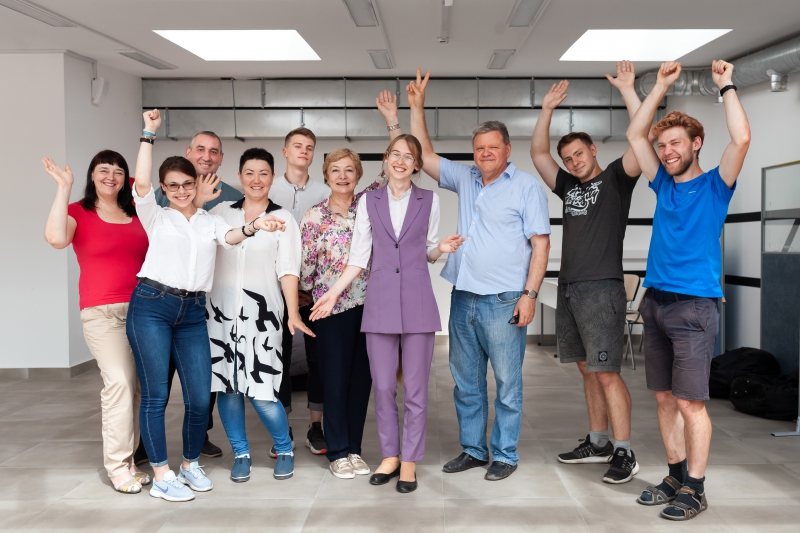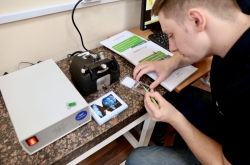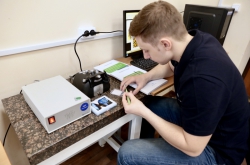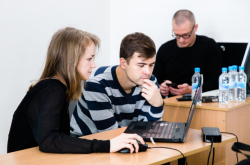It is planned that no less than 100 Quantorium centers will have popped up in different regions all over the country by 2020. But even today, many Russian cities either already have their own Quantorium or will have opened one by the start of the new academic year. Mentors of these centers, which aim at helping children develop their creative and engineering abilities, regularly partake in training sessions to boost their own soft and hard skills. ITMO University has been holding these sessions for a few years already, proffering training to the nanotechnology educators already working or starting their work at a regional Quantorium center. This June marked the third time that such session took place.
As part of the one-week program, the mentors partook in intensive workshops introducing them to scanning probe microscopy, optical microscopy, scanning tunneling microscopy, X-ray fluorescence diffraction, and scanning electron microscopy, as well as workshops on working with specialist equipment such as probe making devices, the NanoTutor training simulator, the MicProbe scanning probe module and the X-ray analyzer Panda. They also conducted laboratory work and mastered lithography using scanning probe microscopy, and attended tours of St. Petersburg Academic University, also known as the Nanotechnology Research and Education Center of the Russian Academy of Sciences, and ITMO University’s Museum of Optics.
“As this is, generally speaking, a workshop on applied skills in the field of nano quantums, we try to not only elaborate on the aspect of working with equipment which Quantorium teachers and students will have at hand but also diversify the program with tours of the Academic University and the laboratories to show the educators where their students will end up with the kind of training that they get. All too often schoolchildren have no idea of what awaits them in their professional future, if only because their teachers don’t know it in the first place,” comments Vitaliy Shkoldin, an engineer at ITMO University’s Faculty of Physics and Engineering.
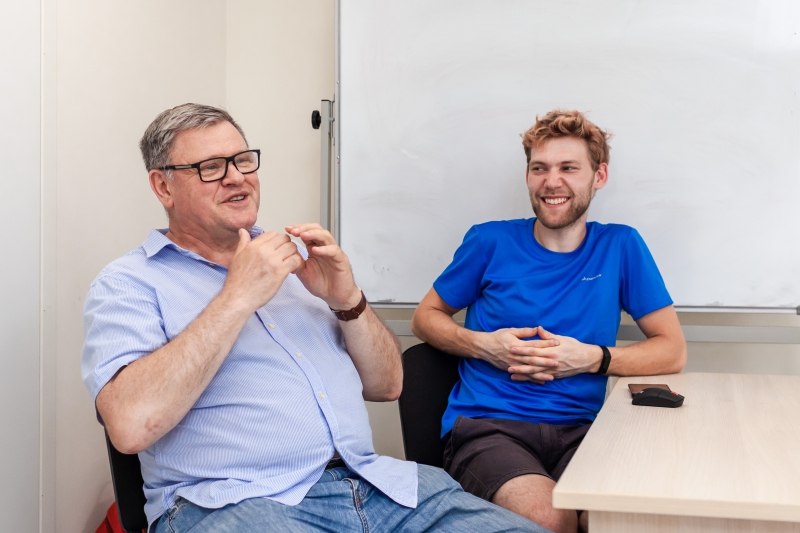
Coordinating the training was a team of ITMO University lecturers (professor Alexander Golubok and researchers Ivan and Mikhail Mukhins) who serve as federal tutors in the field of nanotechnology training. Their scope of tasks in this capacity includes developing training methodology, organizing specialist courses and coordinating the participants of the latter in the course of the process.
“We want to help Quantorium mentors and hope to get feedback in the future when the centers will be in full swing. There have been suggestions to create a national conference on the basis of ITMO University that would allow the existing Quantoriums all over the country to connect and share their experience. Our training focuses not only on hardware but also the whole teaching and learning package from virtual training devices to animation and other tools that speed up the process of mastering different skills. We see it as very helpful that the mentors we teach both young specialists, even students, and specialists with decades-long experience in the field. We want to create a versatile training program that would be effective and comprehensible to everyone,” shares Alexander Golubok, a professor at the Department of Nanophotonics and Metamaterials.
Here is what the mentors who partook in the training session that took place at ITMO University have to say about their experience.
Djamilya Akimbaeva, Quantorium of Almetyevsk, Tatarstan Republic
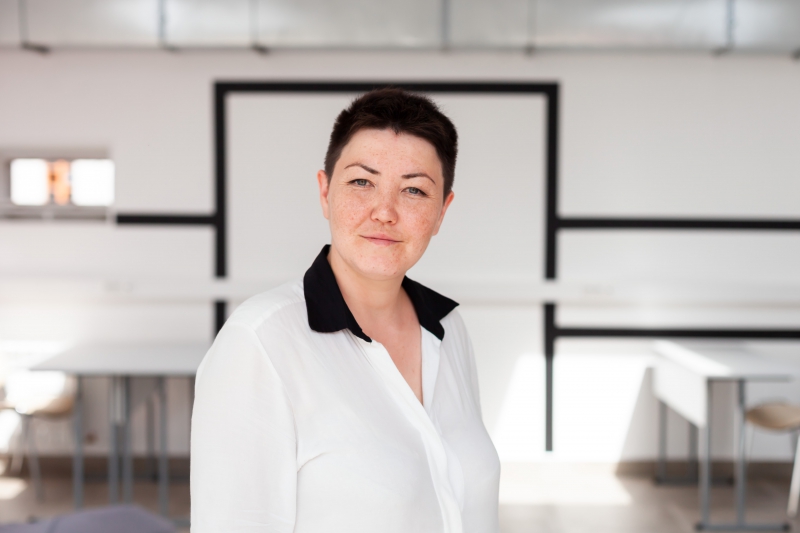
Powered by a wonderful team of young specialists, our Quantorium has been working for two years already. Not all of our mentors are educators by profession; some of them come from very specialized professional backgrounds. Apart from educators, we have engineers and lab specialists. I myself have some teaching experience, having worked at a school for one year, but my main professional focus is nanoparticle ecology.
As of now, we run six educational tracks: IT quantum, neuroquantum, roboquantum, nanoquantum, industrial design and hi-tech manufacturing. Our center is supported by a very serious investor, the company Tatneft, so the majority of our projects revolve around the oil industry. We don’t yet have the kind of equipment I’ve seen at ITMO University: ours is closer to the field of materials science; for example, we have a metallographic microscope.
I’ve been part of the mentorship group since this October. We plan to expand our Quantorium, adding a number of new tracks such as aeroquantum, vessel building and model-car construction. Currently, we cater to some 1,500 students, including children with special needs: they are especially interested in the neuroquantum track. We also work with small children as part of our zoology study group, plants laboratory and other tracks.
I’m positive that absolutely everything I’ve learned here will come in handy in my professional activities, and plan to come here one more time. Everything we did here can be projected onto our own work as mentors, and the team here also helped us with questions that pertained to other educational and pedagogical aspects, bringing us to the full picture of building a mentorship strategy when working with a child audience. This was very useful since our educational institution is still a young one.
Natalia Rybko, Quantorium of Tobolsk
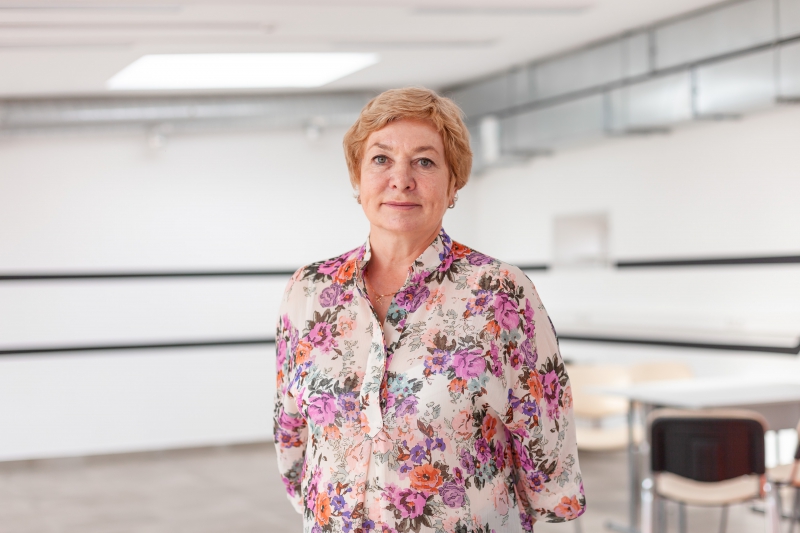
I am a lecturer at an oil-and-gas university, come from a chemistry analysis background and have a long experience of working as a laboratory testing engineer, hence my knowledge of related equipment. Our Quantorium is still in its early days, and it’s important for me that here at ITMO University we’ve seen all the devices that all of Russian Quantoriums will be equipped with. The first aspect we have to deal with when setting up a Quantorium is compiling an equipment list, and it was interesting for me to review this list in consideration of the new knowledge I obtained here, to make our teaching more wholesome and ensure that we offer only the best training to the young. I think it very helpful that the training at ITMO familiarized us with the practical side of learning and the educational programs the elements of which we can implement at our own centers.
Sergey Druchinin, Quantorium of Novokuznetsk
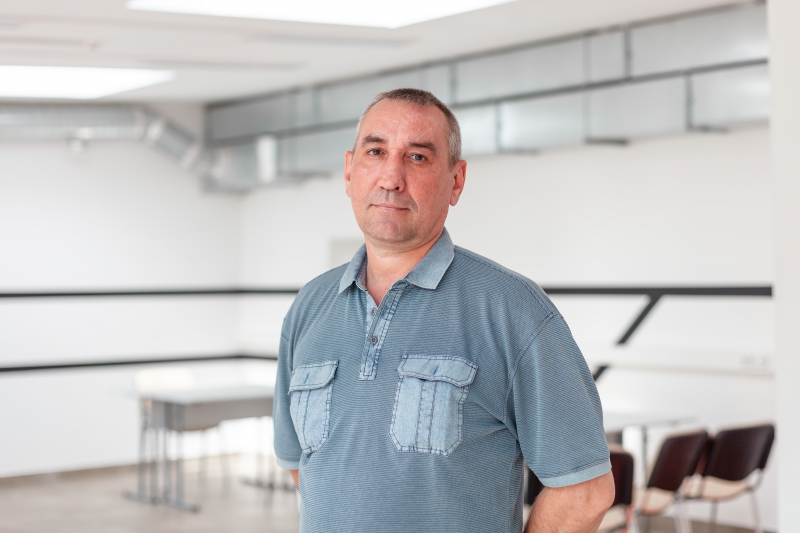
I come from educational background, having worked in pedagogy for some 30 years. Right now I’m pursuing a narrower specialization I’m still learning in. We’re planning to launch our Quantorium this September. I believe that our role is to prepare the students for the equipment they will be working with, which is why it is really important that we the mentors be very well-versed in the kind of equipment our work centers on.
Vladislav Ryabikov, Quantorium of Penza
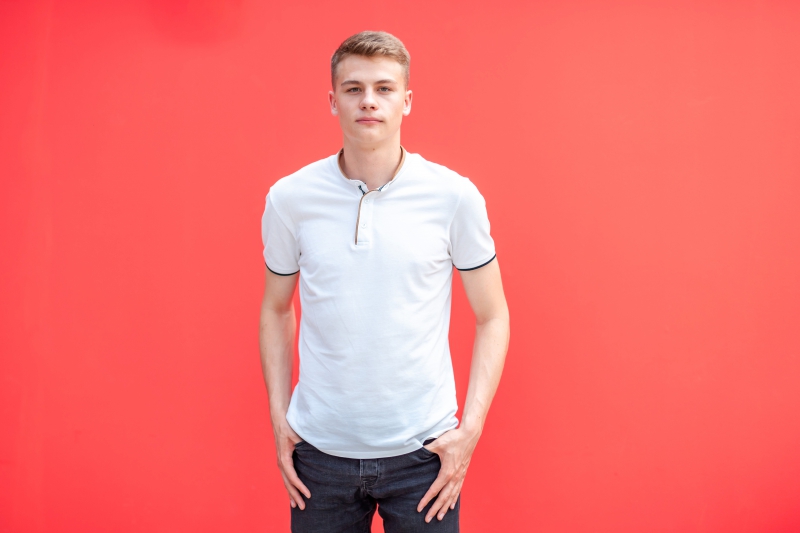
Our Quantorium exists since February of 2018, as of now offering six main tracks: hi-tech manufacturing, roboquantum, IT quantum, industrial design, and bio and nano tracks; but these are planned to be expanded upon in the future. I’m a mentor in the nano track, and I’m also a Bachelor’s student at the Penza State University. This makes me particularly interested in obtaining this experience at ITMO University, and then expanding on it in my work with children. Everything we were doing at ITMO University has a direct link to our professional activities, because we have the lion’s share of the equipment we’ve seen here and we’ve already been using it in the course of the year engaging students in project work. For me, this program became a more in-depth immersion in the field and an opportunity to improve on some of my mistakes such as accuracy of results and their correct evaluation.
It came to pass that our Quantorium intensely focuses on hi-tech as a scientific and technological field and on bio and nano tracks as natural sciences one. We are in close proximity to the company MedEng, a famous heart valves manufacturer, and we’re currently working on our future collaboration, so we are pursuing adjacent fields and our students have already started learning prosthetics development. Our students also work with cases submitted by MedEng.
As part of our nanotechnology track, we accept students starting from 13-14 years old as it is from that age that they start to learn physics and chemistry at school, also deepening their knowledge in the field of biology. We try to implement interdisciplinary projects on the basis of these three fields, assembling teams of young people to work on them.
Much as other Quantoriums, we use a practice-oriented approach, and we’ve seen lots of successes over this year-and-half period. For example, our team emerged as winners of Quantoriada, a competition for Quantorium students from all over the country, that took place in St. Petersburg, and became prize winners at the Baltic Science and Engineering Competition. Now, they are training for the NTI competitions and UniQuant project schools.
Marina Alonova, Quantorium of Saratov
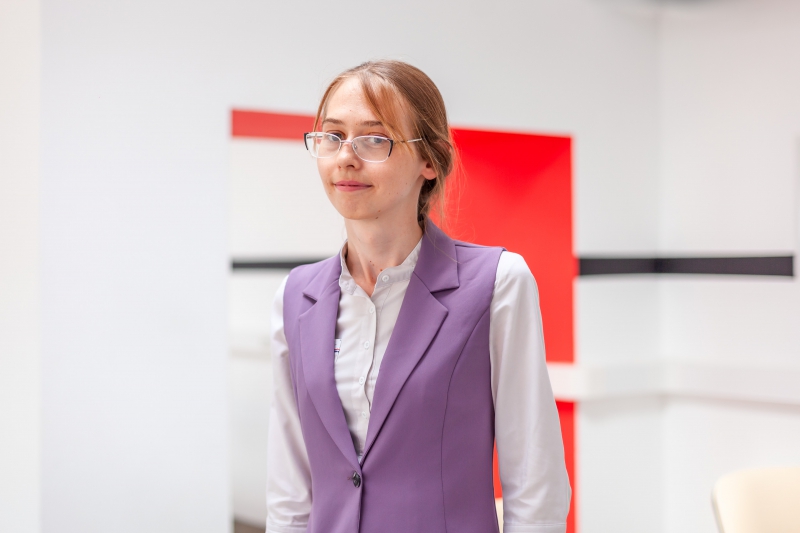
Our Quantorium is still in the works, and nano quantum is but developing as are all of our other tracks. The center itself will be based at a state technical university I’m working at. The mentors were selected from the ranks of the university’s lecturers and graduates. Right now, we’re doing some renovation works and developing a list of equipment. Parallel to that, we’re working on our future intake of students and informing the wider public about the Quantorium and its activities.
The training at ITMO University provided me with a much-needed opportunity to try out the equipment, which is very helpful for compiling the aforementioned list, come up with the most effective and interesting laboratory tasks and build the whole learning process on the basis of this very promising foundation. We’ll decide with our thematic focus, if any, after we open the Quantorium.
Anastasia Naydenova, Quantorium of Novocheboksarsk
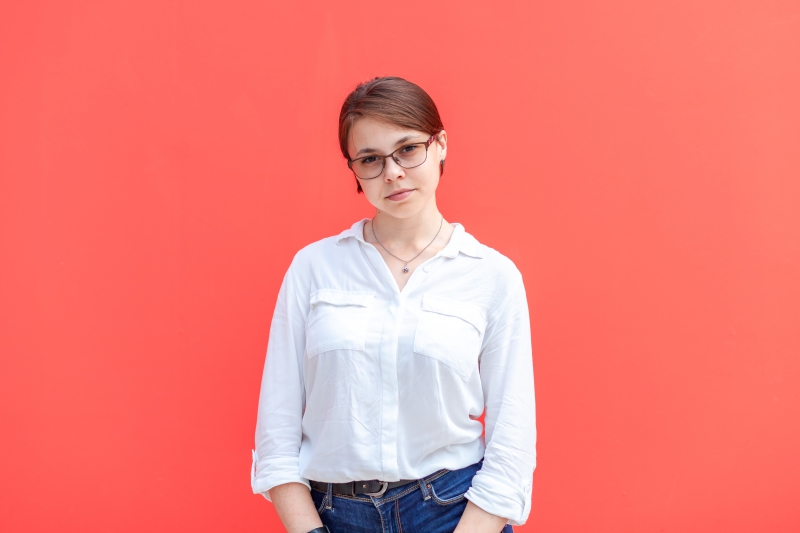
The Novocheboksarsk Quantorium is yet to open, but when it will, it will be based at a chemistry vocational school and have five tracks: nanoquantum, VR quantum, energy quantum, bioquantum and IT quantum. As of now, we’re busy renovating, and plan to launch in September this year.
I’m responsible for the nanoquantum track, but I don’t have any teaching experience: I come from the industry. I was aiming to attend both St. Petersburg and Moscow training sessions because I wanted to develop the understanding of working with probe microscopes and master nano substance synthesis.
Olga Petrova, Quantorium of Rybinsk
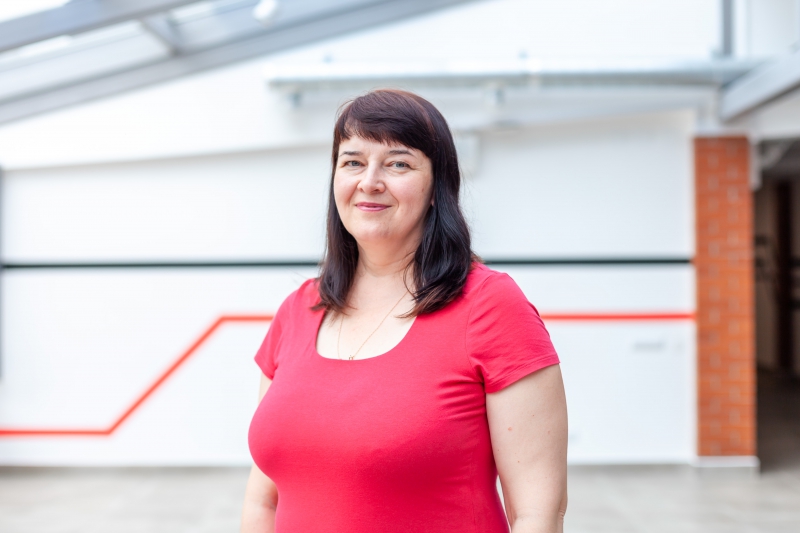
Having previously worked as a chemical technologist, I now teach at nanoquantum and roboquantum tracks at our city’s Quantorium, which will turn two years old this November. I came to ITMO University to improve my knowledge of electron microscopy and practice with optical and electron scanning microscopes to then pass this knowledge to my students for them to apply it in research and product-based projects submitted to us by representatives of the industry or chosen by the students themselves.
Whilst in St. Petersburg, we attended workshops and lectures and visited the Museum of Optics and the Academic University. This experience will enable me to use specific cases to make my students more aware of the equipment they will go on to use in their careers later on, and the places they can go to to bring their dreams into reality, for example, to create a crystalline grid that doesn’t exist in nature using the devices available there.
